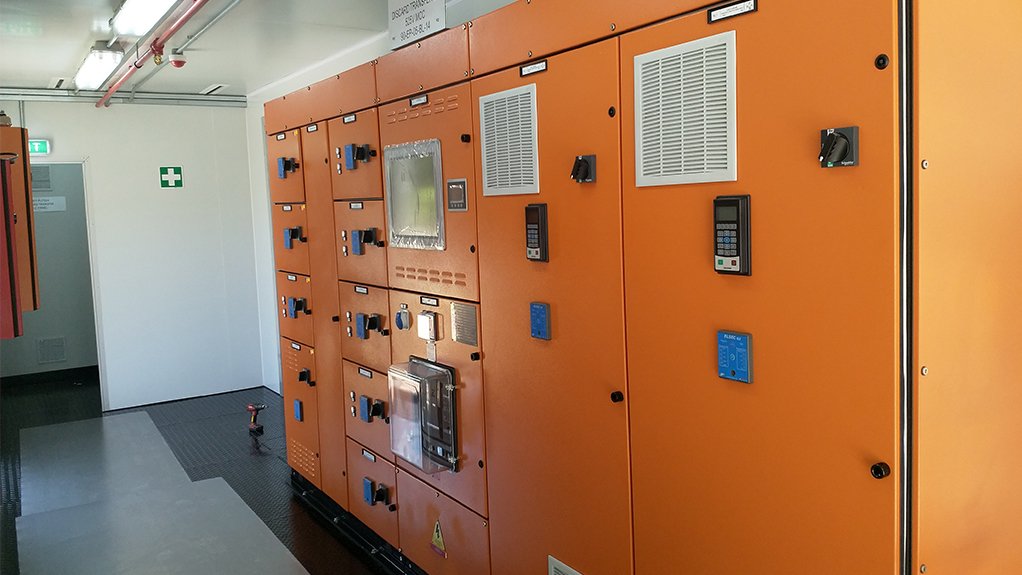Covid-19 continues to haunt manufacturing companies


COVID DELAYS STRETCH Owing to pandemic-related delays, a MCC can now take up to between 30 and 40 weeks to complete
The impact of the Covid-19 pandemic and its resulting lockdowns continues to be felt in the manufacturing sector despite a move towards eased regulations.
Challenges, such as the shortage of electronic components, global shipping delays and overall uncertainty, have impacted on the growth of the manufacturing sector.
The pandemic also resulted in there being less electrical equipment available, owing to a global shortage in semiconductors.
The shortage prompted automation company Iritron to look for alternative component suppliers, as the company requires these semiconductors that form an integral part of the microprocessors in products such as programmable logic controllers, variable-speed drives and various other control system hardware devices.
Iritron CEO Alwyn Rautenbach explains that the shortage has been difficult to manage, particularly because the company’s customers often have a preference for particular product ranges whose supply has been delayed by the international shortage in availability of semiconductors and other components.
To meet client requirements, Iritron provided more value-added engineering by sourcing alternatives, which mitigated some of the impact caused by the shortage, he adds.
Iritron manufactures its products at its plant in Pretoria, Gauteng, and services clients locally and internationally.
Rautenbach says certain equipment is required for the company to meet international quality standards. Such equipment was difficult to acquire, owing to global shipping delays, which, in turn, exacerbated manufacturing delays.
As a result, it has become difficult to predict when a system will be completed.
For example, before the pandemic, Iritron completed a Motor Control Centre (MCC) in 16 weeks. Since the pandemic, it can take up to between 30 and 40 weeks, owing to global delays.
To ensure there were no further delays, Iritron often had to deliver equipment to customers using air freight, which is an expensive option.
As an engineering and a manufacturing company, Iritron has the ability to analyse customer requirements and engineer a solution accordingly. The company is continuously developing new solutions that simplify processes and ensure efficiency and an improved return on investment (ROI) for customers.
Rautenbach cites the sanitising stations developed and manufactured for a mine as an example.
The automated stations enabled staff to sanitise their hands as they enter the workplace, ensuring that safety measures are adhered to, and the process is not too time-consuming.
Meanwhile, Iritron works with major international stakeholders in the metals, minerals and mining sectors, as well as the fast-moving consumer goods sector on national and international projects. The projects range from detail design, engineering, supply of electrical equipment, and manufacture and commissioning of process plants.
The company values building long-term relationships with customers through its high-quality solutions and technical expertise.
The quality-control stamp on Iritron equipment is the assurance that equipment has been subjected to stringent quality control and adheres to Organisation for Standardisation standards , as well as technical standards that are compliant to national and international requirements.
While Iritron acquired control room solution provider Oculus in 2019, the company has refrained from more acquisitions since the pandemic.
Rautenbach explains that, owing to the uncertainty and challenges associated with the pandemic, the company has prioritised growth in the form of attracting and maintaining clients as opposed to pursuing acquisitions.
“We want to be the partner of choice for fit-for-purpose sustainable solutions that contribute to our clients’ operational excellence. We also aim to empower and grow our employees through knowledge sharing and training,” he adds.
Manufacturing in South Africa
Rautenbach says the local manufacturing sector offers good-quality products at a reasonable cost, particularly for international companies that have the advantage of favourable exchange rate.
However, labour costs have increased over the past few years, resulting in reducing the gap between the locally and internationally manufactured products.
Rautenbach explains that economic growth in South Africa depends on the local manufacturing industry and that the company has the expertise to compete on a global scale.
“We maintain that South Africans have, for years, been people who think out of the box,” says Rautenbach.
He adds that, to grow the local manufacturing sector, it is important to employ qualified personnel and to retain the expertise within South Africa.
However, the human capital flight, or “brain drain” of qualified professionals emigrating to finds jobs in other countries, has been a recent challenge.
Therefore, to ensure that there are qualified personnel who can meaningfully contribute to the manufacturing sector, there needs to be increased investment in training the youth and developing the skills that the sector requires.
“We have all the expertise in South Africa, but we don't have the economy to capitalise the global manufacturing demand,” explains Rautenbach.
He concludes that despite increases in local tax and labour rates, South Africa remains attractive to potential investors and that the economy can grow through prioritising skills development and boosting the local manufacturing sector.
Comments
Press Office
Announcements
What's On
Subscribe to improve your user experience...
Option 1 (equivalent of R125 a month):
Receive a weekly copy of Creamer Media's Engineering News & Mining Weekly magazine
(print copy for those in South Africa and e-magazine for those outside of South Africa)
Receive daily email newsletters
Access to full search results
Access archive of magazine back copies
Access to Projects in Progress
Access to ONE Research Report of your choice in PDF format
Option 2 (equivalent of R375 a month):
All benefits from Option 1
PLUS
Access to Creamer Media's Research Channel Africa for ALL Research Reports, in PDF format, on various industrial and mining sectors
including Electricity; Water; Energy Transition; Hydrogen; Roads, Rail and Ports; Coal; Gold; Platinum; Battery Metals; etc.
Already a subscriber?
Forgotten your password?
Receive weekly copy of Creamer Media's Engineering News & Mining Weekly magazine (print copy for those in South Africa and e-magazine for those outside of South Africa)
➕
Recieve daily email newsletters
➕
Access to full search results
➕
Access archive of magazine back copies
➕
Access to Projects in Progress
➕
Access to ONE Research Report of your choice in PDF format
RESEARCH CHANNEL AFRICA
R4500 (equivalent of R375 a month)
SUBSCRIBEAll benefits from Option 1
➕
Access to Creamer Media's Research Channel Africa for ALL Research Reports on various industrial and mining sectors, in PDF format, including on:
Electricity
➕
Water
➕
Energy Transition
➕
Hydrogen
➕
Roads, Rail and Ports
➕
Coal
➕
Gold
➕
Platinum
➕
Battery Metals
➕
etc.
Receive all benefits from Option 1 or Option 2 delivered to numerous people at your company
➕
Multiple User names and Passwords for simultaneous log-ins
➕
Intranet integration access to all in your organisation


















